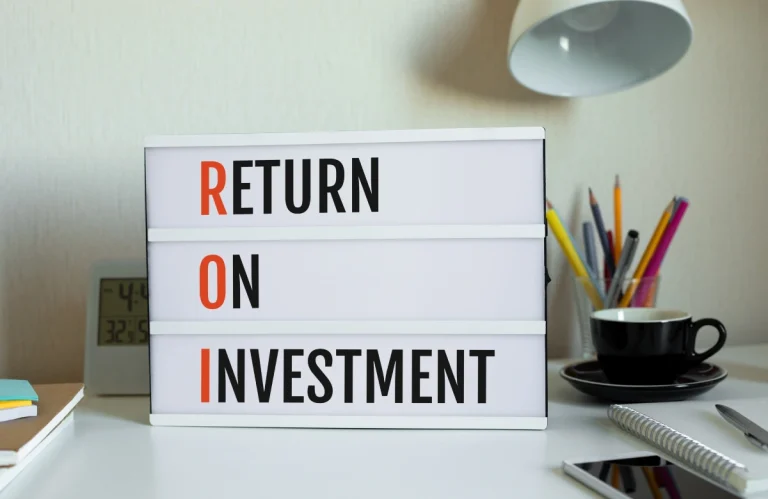Pursuing higher education is a significant decision that impacts both personal growth and career trajectory. In the realm of business, one degree often dominates the conversation – the MBA or Master of Business Administration. However, in an era marked by escalating education costs and an ever-changing job market, it’s natural to question, “Does an MBA provide ROI?”
Understanding an MBA: The Many Types of MBA Courses
An MBA is a prestigious degree designed to cultivate a set of critical business and management skills. Unlike undergraduate business programs, the MBA is uniquely geared towards practical applications of these skills in real-world business scenarios. It’s this hands-on, practical focus that sets an MBA apart.
Beyond the broader ‘MBA’ umbrella, there are countless specializations and types of MBA courses. From traditional concentrations like Finance and Marketing to more contemporary ones like Data Analytics or Sustainability, the options for specialization are extensive. This variety allows MBA students to tailor their education to their specific career goals, thus enhancing the potential ROI of their degree.
If you are considering an MBA, check out this detailed guide on everything you need to know before starting your MBA.
The Real Cost of an MBA: More than Just Tuition
The cost of pursuing an MBA can be substantial. However, many prospective students tend to focus only on the tuition fees, overlooking the total cost. Beyond tuition, other financial considerations include living expenses, books and supplies, and the often-overlooked opportunity cost of taking a career hiatus to return to full-time study.
The average cost of an MBA program in the U.S. was about $140,000 in 2020, according to the Financial Times. When accounting for lost income and potential career progression, the real cost can be considerably higher.
The Benefits of an MBA: Answering ‘Why MBA is Important’
While the costs are significant, the benefits of an MBA can be substantial too, making it a worthy investment for many.
Monetary Benefits
One of the most direct benefits is the potential for increased earning potential. A survey by the Graduate Management Admission Council found that 89% of MBA alumni reported that their degree increased their earning power. However, this potential varies widely based on factors such as the prestige of the school, the specific industry, and geographical location.
Non-Monetary Benefits
It’s important to consider the intangible benefits of an MBA as well. These can include building a robust professional network, gaining international exposure, achieving personal growth, and developing leadership skills. These intangible benefits are often just as valuable, if not more so, than the direct monetary benefits.
Measuring ROI of Your Dream MBA Program
Calculating the ROI of an MBA isn’t as simple as it might seem. Unlike a straightforward financial investment, an MBA yields returns that extend beyond mere monetary gains. While the simplest ROI calculation might compare the total cost of the MBA (including opportunity costs) with the increase in post-MBA salary, this fails to account for the intangible benefits. To obtain a more comprehensive understanding of the ROI, these intangible factors must be considered, even though they may be difficult to quantify.
Which MBA Programs Provide the Most Return on Investment?
The ROI of an MBA program varies greatly based on factors such as the school’s reputation, the industry you’re in or plan to enter, and even the geographical location. For instance, according to a recent Financial Times Global MBA Ranking, Stanford’s MBA program had the highest average weighted salary of $228,074, indicating a high potential ROI for graduates.
However, it’s important to remember that the highest potential return doesn’t necessarily equate to the highest actual return. The real ROI of an MBA is highly dependent on individual factors, including career aspirations, personal motivation, and the effort put into maximizing the opportunities provided by the MBA program.
To dive deeper into this topic, take a look at this comprehensive article on the ROI of MBA from the USA.
ROI on a Ten-Year MBA?
When viewed over a longer period, the ROI of an MBA can be substantial. According to a study by Forbes, the ROI of a top MBA program can reach around 250% after a decade, making the degree a potentially lucrative long-term investment.
Frequently Asked Questions
Q1. What are the different types of MBA courses?
There are numerous specializations including Finance, Marketing, HR, Operations, International Business, IT, and more.
Q2. Why is an MBA important?
An MBA can provide career advancement, higher earning potential, and personal growth.
Q3. How do I calculate the ROI of an MBA?
A quick way of doing this is to consider the total cost (including opportunity cost) and compare it with the increased earnings and intangible benefits post-MBA.
Q4. Which MBA program provides the best ROI?
It depends on various factors like school prestige, location, and your specific career path.
In conclusion, an MBA can be a significant investment that provides dividends over time, both monetarily and in personal development terms. However, the actual value and ROI are highly personal, and prospective students should carefully consider their career goals, financial circumstances, and the kind of value they seek from the program before taking the plunge.





